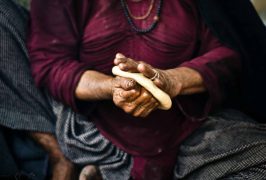LEAF Intervenes at Supreme Court of Canada:
Ameliorative Programs Protected Only from Claims of “Reverse Discrimination”
December 14, 2010, Toronto – On Thursday, December 16, 2010, LEAF will intervene in the Supreme Court of Canada case of Cunningham v. Alberta. LEAF will address an important and emerging issue in equality jurisprudence: whether ameliorative (affirmative action) government programs can discriminate against some members of disadvantaged groups while benefiting others. LEAF will argue that s. 15(2) of the Charter should not be used by governments or the Courts to protect ameliorative programs that discriminate against members of disadvantaged groups.
“LEAF is concerned that the arguments being made by various provincial governments in this appeal will result in a two-tiered hierarchy of equality rights that will diminish the constitutional protection for members of disadvantaged groups who are excluded from ameliorative schemes.” says LEAF Legal Director, Joanna Birenbaum.
“For example, an ameliorative program which targets women for employment training, should not be automatically protected from a s.15(1) Charter challenge when it is held in an inaccessible location and thus unavailable to women with disabilities who use a wheelchair,” explains Birenbaum.
The Cunningham case involves a challenge to the Alberta Metis Settlement Act (the “MSA“). The MSA was enacted to preserve a land base for the Métis in Alberta, to enable Métis self-governance, and to enhance and preserve Métis culture and identity. The MSAalso governs entitlement to membership in the eight Alberta Métis Settlement communities.
The claimants are challenging two provisions of the MSA which exclude those who “voluntarily” registered for Indian status under the Indian Act, after November 1, 1990. Under the impugned provisions, those status Indians are excluded from membership in a Métis settlement. However, Métis Settlement members who held Indian status on or before November 1, 1990 (the date on which the Metis Settlement Act came into force) are not excluded from membership.
The Cunningham family claimants, all long-standing (and some even founding) members of the Peavine Métis Settlement, obtained status under the Indian Act in the early 1990s in order to access health benefits unavailable to Métis. As a result, they were removed from the Métis Settlement Membership list, depriving them of, among other things, their rights to reside in their community and participate in governance and communal life. Most of the claimants became entitled to Indian status following the partial removal of sex discrimination in the Indian Act status provisions under Bill C-31 in 1985. The Cunninghams argue that the MSA discriminates against them on the basis of their Indian Act status.
The Alberta government defends the legislation on the basis that the MSA in general, and the exclusion of status Indians in the membership provisions in particular, are “ameliorative” and thus should receive significant deference by the Court under s.15(2) of the Charter, and should not be subjected to full s.15(1) Charter scrutiny.
“This SCC appeal is the first to consider the application of s.15(2) of the Charter since the Supreme Court’s landmark decision in R. v Kapp, in the summer of 2008,” explains Birenbaum.
In Kapp, a group of mostly non-Aboriginal fishers claimed that a 24-hour program exclusively for Aboriginal fishers in British Columbia was “reverse discrimination”. The Court in Kapp held that the fisheries program was protected under s.15(2) of the Charter because it was designed to ameliorate the conditions of the Aboriginal fishers. The Court rejected the non-Aboriginal claimants’ argument that the program should be struck down because it made a distinction on the basis of the Aboriginal “race” of those who received the benefit.
“The Kapp decision promoted substantive equality because it clearly put a stop to the kind of reverse discrimination claims we see made in the United States, in which targeted programs to increase the socio-economic inclusion of marginalized groups are attacked for allegedly discriminating against members of privileged groups,” says Birenbaum. “SinceKapp, however, we have increasingly seen governments try to shut downequality claims on the basis that the impugned legislation is “ameliorative”. This is a very troubling trend.”
LEAF’s factum argues that s.15(2) of the Charter protects ameliorative programs from attack by privileged groups, but does not protect such programs from claims of under-inclusion by members of disadvantaged groups. LEAF argues that any such protection will almost certainly have a disproportionate impact on women (and others) who experience multiple layers of discrimination, and are thus more likely to be excluded from a targeted “affirmative action” program.
“In this case,” explains Birenbaum, “the claimants all suffer the ongoing effects of sex discrimination under the Indian Act. The claimants are only in the position of obtainingIndian Act status after November 1, 1990 because of this history of sex discrimination. A full analysis under s.15(1) of the Charter is necessary to understand the intertwining of sex and Indian status discrimination in this appeal”. Birenbaum goes on to note that “following the 2009 British Columbia Court of Appeal decision in McIvor v. Canada and the recent enactment of Bill C-3,Indian status may become available to approximately 45,000 people. Accordingly, the SCC’s decision in this appeal will have particular impact on women and descendents of women who lost their status due to sex discrimination under the Indian Actand who identify as Métis”.
LEAF takes no position on the outcome of the appeal or even on whether the MSA is an ameliorative scheme, but strongly urges the Court to engage in a full s.15(1) analysis in its consideration of the equality claim.
Professor Dianne Pothier of the Schulich School of Law at Dalhousie University will argue the appeal on behalf of LEAF.
For more information, please contact:
Joanna Birenbaum
(LEAF Legal Director/Co-Counsel)
(Cell) 647-500-3005 – (Office) 416-595-7170 ext. 223 – (E-mail) [email protected]
